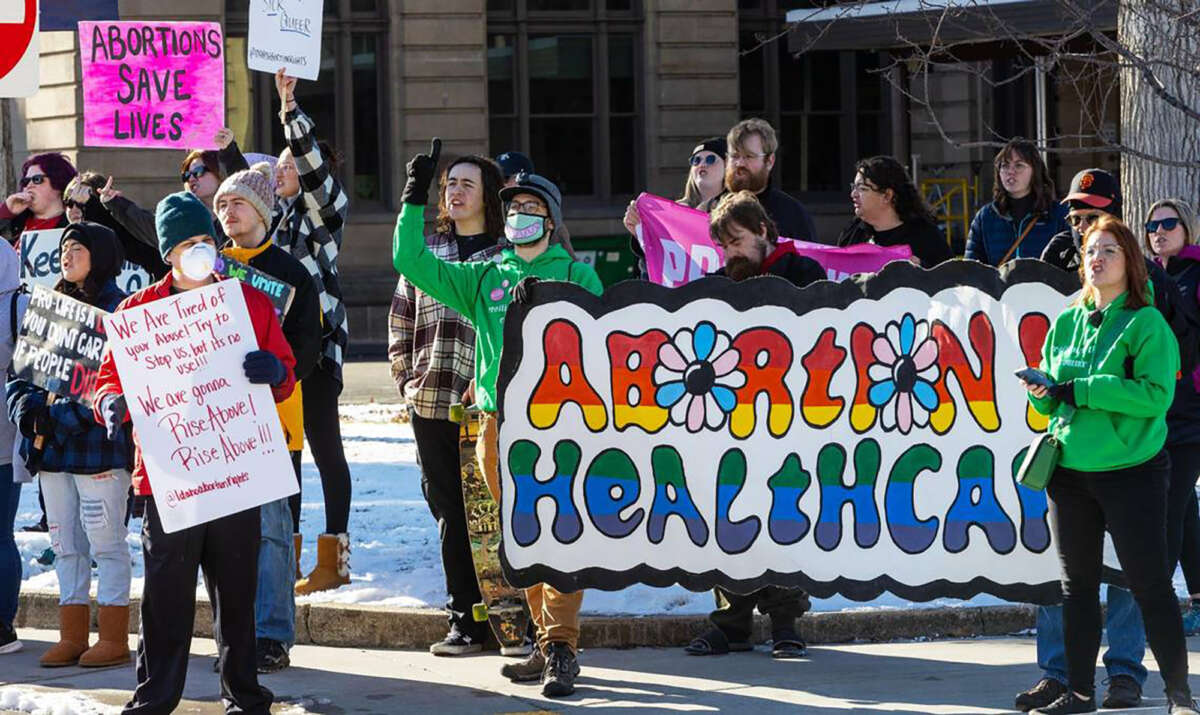Eight women across three states — Idaho, Tennessee and Oklahoma — have filed legal actions to ensure that pregnant people with dangerous complications can access abortion care in those states.
“The Supreme Court’s unwarranted reversal of Roe v. Wade has led repeatedly, in multiple states, to women being denied abortion care when they face serious complications in their pregnancies,” Nancy Northup, president and CEO of the Center for Reproductive Rights, said in a statement. “No one should have to be at death’s door to receive essential health care, but that is exactly what happens when doctors are forced to practice medicine under threat of imprisonment.”
Abortion bans in these states include exceptions for pregnant people who are experiencing medical emergencies. But the bans use ambiguous language and non-medical terminology, leaving doctors unsure how sick or near death a patient must be before legally meeting the “medical emergency” standard.
Because health care professionals in violation of the bans face prison time, hefty fines, and/ or loss of licensure, doctors are hesitant to provide abortions in life-threatening circumstances — and many pregnant people with complications have been refused abortion care in these states.
“Abortion bans across the nation are exposing pregnant people to risks of death, illness, and injury, including loss of fertility,” Northup said. “The women standing up today survived, but it is only a matter of time before someone does not.”
Abortion bans in Idaho and Tennessee do not make exceptions for pregnancies in which the fetus has a fatal condition and will not survive — a circumstance that can pose a grave threat to a pregnant person’s health. Nicole Blackmon, one of the plaintiffs in the lawsuit against Tennessee, was forced to carry a nonviable pregnancy for months.
“I was in terrible pain and could even have had a stroke and died, but I could not afford to travel out of state for an abortion,” Blackmon said in a statement. “I was condemned to endure both physical and emotional torture, knowing that I was going to deliver a stillborn.”
Another plaintiff in the case, Jennifer Adkins, was forced to scramble to come up with funds to travel for abortion care after learning that her pregnancy was likely nonviable and that her life was in danger.
“I knew right away that I needed an abortion to save my life and to make sure that I was here and healthy for my family, including my now 2-year-old son,” Adkins said. “But the fact that I couldn’t get the abortion care I urgently needed in Idaho just added to our misery.”
Federal law requires that health care professionals offer necessary emergency care to patients, including abortions. But Jaci Statton, a plaintiff in the case against Oklahoma, was refused an abortion even when her pregnancy became life-threatening. Statton later filed a federal Emergency Medical Treatment and Labor Act (EMTALA) complaint alleging that she was illegally refused care.
“Oklahoma’s laws nearly killed me,” Statton said. “I ended up having to travel almost 200 miles out of state for care — it was the longest and most terrifying ride of my life.”
Our most important fundraising appeal of the year
December is the most critical time of year for Truthout, because our nonprofit news is funded almost entirely by individual donations from readers like you. So before you navigate away, we ask that you take just a second to support Truthout with a tax-deductible donation.
This year is a little different. We are up against a far-reaching, wide-scale attack on press freedom coming from the Trump administration. 2025 was a year of frightening censorship, news industry corporate consolidation, and worsening financial conditions for progressive nonprofits across the board.
We can only resist Trump’s agenda by cultivating a strong base of support. The right-wing mediasphere is funded comfortably by billionaire owners and venture capitalist philanthropists. At Truthout, we have you.
We’ve set an ambitious target for our year-end campaign — a goal of $211,000 to keep up our fight against authoritarianism in 2026. Please take a meaningful action in this fight: make a one-time or monthly donation to Truthout before December 31. If you have the means, please dig deep.
